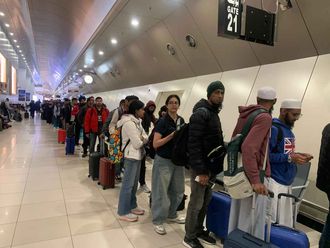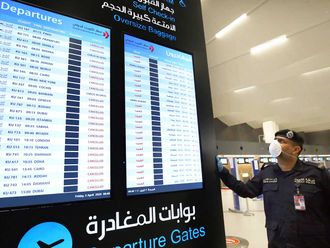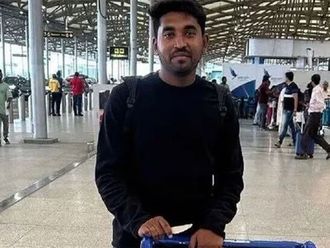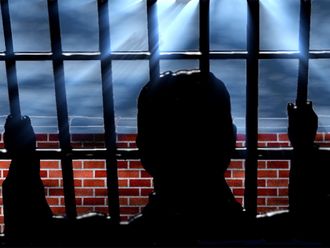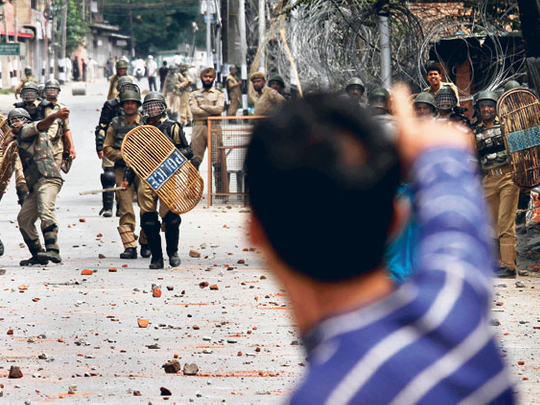
Srinagar: Thousands of angry protesters rushed into the streets in Jammu and Kashmir on Friday after government forces killed two people and injured at least eight others for defying a curfew in the disputed region, police said.
The violence was the latest in two-month stretch of civil unrest that has left at least 53 people dead. Most of the victims have been shot by government forces in clashes with rock-throwing demonstrators during protests against India's rule over the predominantly Muslim Himalayan territory.
In the northern town of Pattan, troops fired at a group of people who defied the curfew, killing a 65-year-old man and wounding two others, a police officer said on condition of anonymity because he was not authorised to talk to reporters.
As the news of the shooting spread, thousands of people came out of their homes and clashed with government forces at several places in the town, police said.
The protesters threw rocks at the troops, who responded by firing warning shots in the air and tear gas, the officer said.
Mosque
In Trehgam, a village north of Srinagar, the region's main city, protesters threw stones at government forces, angered by their refusal to allow them to visit a mosque for prayers on the first Friday after the start of Ramadan, resident Maqsood Ahmad said.
The security forces fired at the protesters, killing a teenage student and wounding at least six others, the police officer said.
The protesters were later joined by thousands of residents from neighbouring villages, leading to more clashes, he said.
The situation in the volatile region in recent weeks has been reminiscent of the late 1980s, when protests against New Delhi's rule sparked an armed conflict that has so far killed more than 68,000 people, mostly civilians.
In Srinagar, authorities did not impose a curfew on Friday after a key separatist leader and cleric, Mirwaiz Umar Farooq, warned of total defiance if worshippers were stopped from praying at the Jamia Masjid, the city's main mosque.
The mosque has remained out of bounds for people on Fridays for the past six weeks to avoid protests after the weekly prayers.
"The government is now even interfering in our religious affairs and not allowing us to offer prayers at the Jamia Masjid. If this situation continues it is binding on Muslim clerics to call for a war on the state," Farooq said.
Shops, businesses and most government offices were closed in Srinagar yesterday and public transport stayed off the roads because of calls by separatist leaders for a strike.




